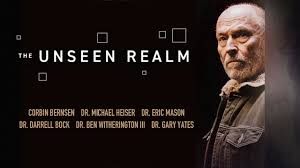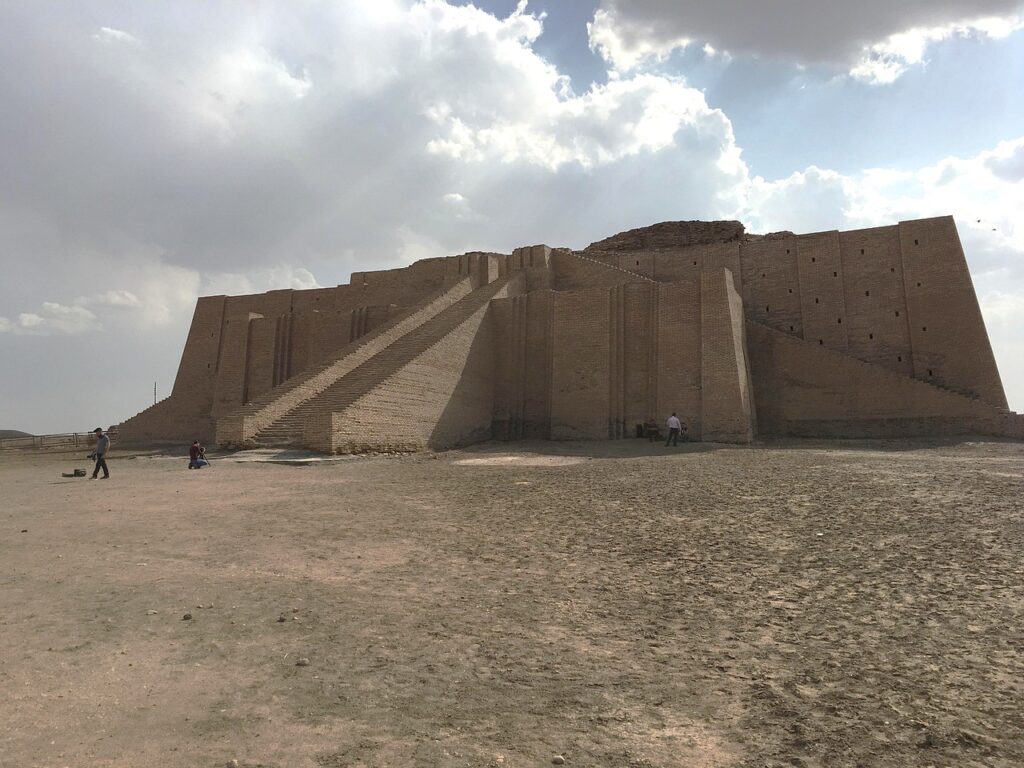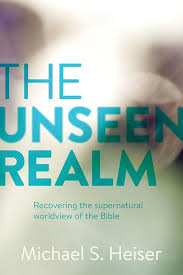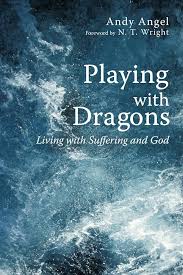Michael Heiser’s largely academic book, The Unseen Realm, has had a wide influence well beyond the scholarly world. I was sent a photo recently when the book was spotted for sale in the gift shop of a high-end resort in Mexico.
The fascination is not new. For millennia humans have sought to understand (and often sought to control) whatever powers may lie behind the physical world. This was not just a matter of curiosity but of survival in a wild and dangerous world.
C. S. Lewis saw two opposite errors in today’s “civilized” world–one is to not believe in the devil and the other is to have an excessive interest in the demonic. While I have given much praise to Heiser’s book over the course of this series of posts, in the spirit of balancing belief with caution, I offer a few concerns.
First, Heiser often seems too confident about his viewpoints. While I think he is largely on track, he would have been better to recognize the strengths of other perspectives and acknowledge that he may not be absolutely right at each point.
One particular example comes in chapter nine regarding predestination and free will. Though his distinction between what God foreknows and foreordains is helpful, I don’t think this solves these contentious issues as much as he thinks they do. Nor does he resolve the related topic of the problem of evil, an issue which probably can’t be answered this side of glory.
Second, Heiser says little or nothing about possible implications of rebellious spiritual beings influencing nations in our day. Might this lead us to categorically condemning all people from certain national or ethnic groups as evil and irredeemable, thus justifying violent, inhuman treatment of them?
The world is complex. Even the one nation in the Bible that was God’s inheritance (Israel) rebelled and did many evil things. At the same time, other nations besides Israel can turn to God (Ninevah). Likewise today, no nation is entirely pure nor purely evil.
As Aleksandr Solzhenitsyn famously said in The Gulag Archipelago:
“The line separating good and evil passes not through states, nor between classes, nor between political parties either—but right through every human heart—and through all human hearts.”
Finally, it is important to remember that while Heiser highlights an important biblical theme, a neglected one, and a misunderstood one, this is not the only theme nor necessarily the main one in the Bible. It is one piece of a multifaceted story.
We can, for example, view the whole Bible through the lens of the Temple. Though it is often said the Bible begins in a garden (Genesis) and ends in a city (Revelation), both images are ways of understanding all of creation as a Temple—a place where God dwells, a place where heaven meets earth.
The Exodus event is another theme threaded through the whole Bible. It is foreshadowed in Genesis, takes center stage in the book of Exodus, and then makes major reappearances in the Psalms, in Isaiah, in Mark, and elsewhere. We can easily think of others such as: creation, de-creation, re-creation; or mercy and justice; or freedom and slavery; or faith, hope, and love.
The conflicts of the earthly and the unseen realms are, as Heiser says, found from Genesis to Revelation. This and the wealth of other such themes are worth a lifetime of meditation so that we may be more fully shaped by God and his Word.
–
Image credit: Susan DeCostanza









 In fact, when the King James Version was originally typeset and published, each verse began its own paragraph. And that is still the way it is printed!
In fact, when the King James Version was originally typeset and published, each verse began its own paragraph. And that is still the way it is printed! Wait? What? Seriously? This sounds like Salem Witch Trial stuff to determine if someone is in league with the devil. “Did you feel a chill when their shadow crossed you?” I mean, really?
Wait? What? Seriously? This sounds like Salem Witch Trial stuff to determine if someone is in league with the devil. “Did you feel a chill when their shadow crossed you?” I mean, really?